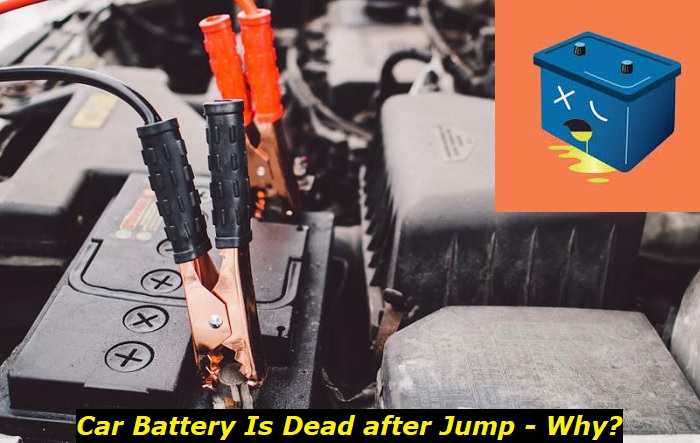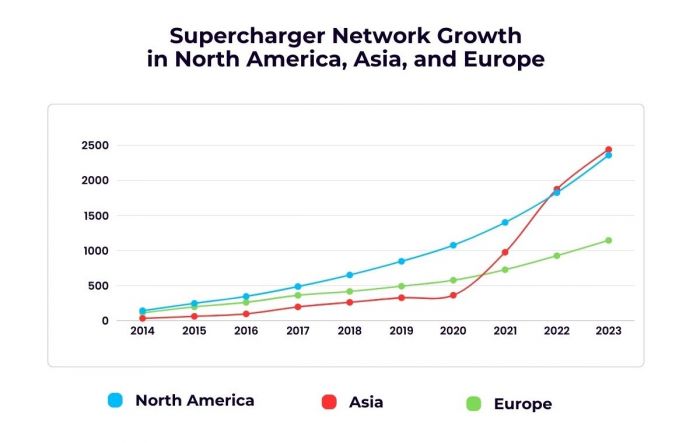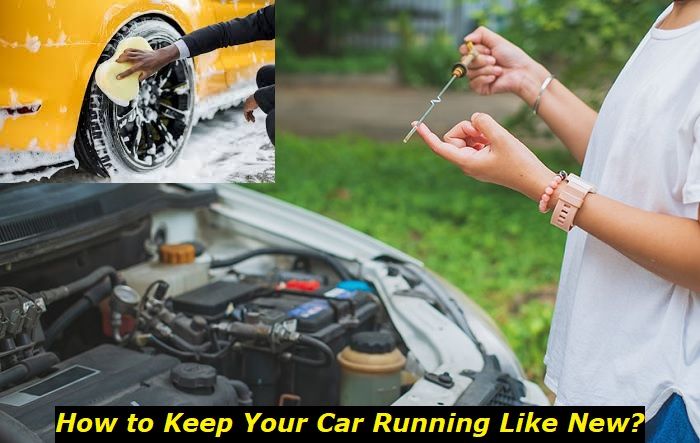Your car battery may die after jump because it's dead and can't hold charge or because the alternator isn't working properly. Also, there may be a problem with bad power leaks. Another possible reason is that the wiring is not OK and causes some issues with the conditions of the battery work.
Dead car battery highlights
- Average lifespan:4 - 5 years
- Voltage range:less than 10 volts
- Symptoms:no crank, no lights
- Reasons:complete discharge, age, hard use
- Prevention:regular charging
- DIY fix:possible
- How much to fix?$0 - $250

Reasons for the car battery to die after being jumped?
If your car battery is dying after you jump it, this may mean that you are at risk of not starting the vehicle. You may jump it and then drive for some time. But once you turn the vehicle off, the car battery may be dead again. Why is that? Well, there are several reasons and I will try to tell you about each of the common possible issues.
Here they are:
1. The car battery just doesn't have time to charge
Drivers sometimes just don't understand how car batteries get charged. It's not that quick. For a full recharge, an average car battery will need about 10 hours or even more. Also, you should know that the alternator is not the best car battery charger and it will do a lot of other work. So, this process is even slower.
If you jump-start your car and now it works, it doesn't mean that you can turn the engine off in 10 minutes and hope that the car battery got enough charge to work properly. It didn't, so the vehicle will just not start without help and you will need to jump-start it again.
If your battery was so weak that it couldn't start the engine, it would need about 10 hours of charging with a special charger to get some juice back. Don't hope that it will be restored right after the engine starts.
2. The battery is completely dead and doesn't take the charge
This is another common problem. You may use your battery charger to restore the battery but if it's dead and damaged, there is no way you can succeed in it. Batteries consist of lead plates and electrolyte between them. Once the electrolyte spoils, the power can't be transmitted between the plates.
Also, the plates can lose parts of important materials in them so that they don't hold electric power anymore.
Such batteries won't be able to get any charge from the alternator or from battery chargers. They are hopeless and have to be replaced.
3. Alternator isn't working properly
Your alternator should produce more than 14 Volts to charge the battery. Otherwise, the electrical system of your car will still get enough power but the battery won't be charging. If the alternator has less than 14 Volts, the battery is going to slowly die and will not be charged after you jump-start the vehicle.
Also, the situation will be much worse if the alternator is not working at all. In this case, your battery will be losing charge because it will be feeding all the systems in your car instead of the alternator.
Usually, the car battery only works to start the engine. It won't lose the charge in other situations because the alternator kicks in right after you start the engine. But if the alternator is faulty, the battery will keep losing charge and getting nothing back. This will kill it in 2-3 hours.
4. Wiring issues
Sometimes, you will also need to pay attention to wiring. Maybe, the wire that connects the alternator to the battery is broken or corroded. Maybe, there is a problem with connections. If this happens, you will obviously have issues with the battery very soon.
This is the hardest problem to check because wires are not open and available for inspection. They are all hidden in wiring harnesses and are located without any logic. It means that if you couldn't find the problem on your own, you will have to go to a trusted repair shop and have the vehicle checked thoroughly.
But before you go to the shop and pay money for inspections and repairs, check all other possible issues given above.
Wrong jump-starting can kill the battery
If you think that jump-starting the car is easy and safe, you are wrong. This is the procedure that can actually kill your car if done with some mistakes. You will need to follow certain steps and never mix them up because this can fry something in your vehicle or in the car that helps you jump-start the battery.
Here's what you should do:
- Locate batteries in both cars and prepare cables.
- Take the red cable and connect the plus terminals on both batteries with it.
- Start the car that helps you to avoid attacking its battery and killing it.
- Take the black cable and connect it to the negative terminal of the working car.
- Connect the other end of the black cable to any unpainted metal part in the dead vehicle.
- Wait for 5 minutes till your dead battery gets some charge.
- Try starting the dead car now.
- If it doesn't start, wait for 5 minutes more before you try once more.
- Disconnect the black cable first from the dead car, then from the working car.
- Disconnect the positive terminals and close the hoods of both cars.
This is all you need to do. If you connect or disconnect something in the wrong order, you may fry the fuses or even some equipment in both vehicles. Be very careful and make every step after making sure this is something you need right now.
Maybe, your battery is dead after jumping just because you did something wrong and now there is a problem with some other parts of your car, not only with the battery.
Signs your car battery is completely dead
Before you continue searching for a possible problem in the vehicle, there is a good tip: check if the battery is actually alive.
I know several important signs that the battery is dead and needs replacing:
- the battery is not showing any signs of life after it was charged for more than 5 hours;
- the voltage of the battery is less than 10 volts;
- the battery is more than 5 years old and starts going crazy;
- there are signs of damage on the body of the battery, some leaks of electrolyte, etc.;
- when under load, the battery loses its voltage up to zero volts.
If you have a multimeter, it's not that hard to check the battery. Also, if it doesn't go back to life for more than a week or two after you charge it with a good electric charger, the battery is done and needs a replacement.
Usually, car batteries don't live more than 5 years, but there are some tips you can use to make them run a little more than that.
How to prolong the life of your car battery?
There are several important things you can do to prolong the life of the battery in your vehicle. First of all, it's about choosing the right battery type. If your battery is much smaller or larger than recommended for your vehicle, it will not work for too long because it will not be charged properly.
Also, you may want to follow these tips:
- charge your battery with a good proper charger at least once a year;
- pay attention to charging system faults and errors;
- don't drive for a long time with the battery warning light on your dash;
- inspect the battery from time to time, look at its terminals, and clean them if needed;
- use the multimeter to check the battery's health after it's over 5 years old.
By following these simple tips, you will be able to prolong the life of your battery and also predict when this battery is going to be dead. This will help you avoid dangerous and unpleasant situations. Of course, this is not something that saves you in all situations. But at least you will do everything you can to save the battery or to replace it right on time to avoid problems.
Final thoughts
I don't think you can save the battery for more than 6-7 years even if you follow all possible instructions on how to prolong its life. So, if your car battery dies after you charge it or after you drive for several hours, this is a clear sign of problems with the battery itself or with the charging system. Check everything and solve the problem in accordance with your findings.
About the authors
The CarAraC research team is composed of seasoned auto mechanics and automotive industry professionals, including individuals with advanced degrees and certifications in their field. Our team members boast prestigious credentials, reflecting their extensive knowledge and skills. These qualifications include: IMI: Institute of the Motor Industry, ASE-Certified Master Automobile Technicians; Coventry University, Graduate of MA in Automotive Journalism; Politecnico di Torino, Italy, MS Automotive Engineering; Ss. Cyril and Methodius University in Skopje, Mechanical University in Skopje; TOC Automotive College; DHA Suffa University, Department of Mechanical Engineering






Add comment